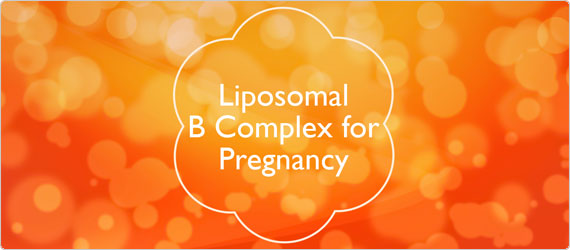
While preparing your body for fertility, and throughout pregnancy B vitamins are very important due to the increased demands on the mother’s body. B Vitamins are a group of nutrients who despite having individual roles, share similar functions, and this is why it is most beneficial to take them as a complex.
During pregnancy the body will use B Vitamins for growth and development, so are essential for a developing fetus! The B vitamins are fundamental to our lifelong health so deficiencies at any stage of life can negatively affect wellbeing. Women who are pregnant after recently taking the Oral Contraceptive Pill may have increased needs for B Vitamins, particularly B6, Folic acid, and B12, and healthy sperm also relies on B Complex Vitamins.
There are many great food sources of B vitamins, including:
- Wholegrains
- Legumes
- Organ meats
- Eggs
- Nuts and seeds
- Green leafy vegetables
At times, when we have increased needs or when our diet isn’t as healthy as we would like, it’s vital to have sufficient intake of B1, B2, B6, B9 (folate) and B12, so that’s when considering high quality supplementation can be useful.
Planning a pregnancy? Choose new generation Liposomal B vitamins
Another important aspect is the form of each B vitamin your supplement supplies. Choose your B Complex supplement well. Using forms that are ready to be used by the body and don’t require the same process for conversion is idea. We know this can be confusing, so have included a list here to make it easier for you.
| Active forms | Non-active forms – must be converted | |
| Vitamin B2 | R5P (riboflavin 5′-phospate) | riboflavin |
| Used by the body for many key metabolic processes including red blood cell formation, energy production, healthy growth and tissue repair. It’s important for your baby’s bone, muscle, and nerve development. | ||
| Vitamin B6 | P5P (pyridoxal-5’-phosphate) | Pyridoxine hydrochloride |
| Its role in cell multiplication makes vitamin P5P a vital nutrient in pregnancy. Studies show low rates of conversion from pyridoxine to the active P5P form, especially in people with gluten allergies. | ||
| Vitamin B9 | L-5-MTHF (methylfolate or 5-methyltetrahydrofolate) | Folic acid |
| L-5-MTHF Methylfolate is integral to the body’s methylation cycle, an essential regulatory process occurring in every cell and tissue. During pregnancy it is primarily needed to prevent NTDs (such as spina bifida) and cleft palate. Folic acid is commonly used in supplements and ‘fortification’ of food. Unless your body can convert folic acid to L-5-MTHF it will be a wasted supplement. Recent research is showing a variation in the MTHFR gene occurs in one of every two or three people. This variation prevents conversion of non-active B vitamins. For up to 50% of people, your folate needs during preconception and pregnancy require the L-5-MTHF supplement form. | ||
| Vitamin B12 | Methylcobalamin | Cyanocobalamin |
| Methylcobalamin is essential for red blood cell formation, nerve health and detoxifying the brain. Deficiency can cause anemia and impair brain or nervous system function. A 2012 report from Dublin University found that taking vitamin B12 alongside folate while pregnant gave a further significant reduction in the risk of NTDs. Methylcobalamin is immediately available to your biochemistry, while the cheaper synthetic cyanocobalamin form is not. | ||
The 8 essential bio-active B Complex vitamins are:
- B1 Thiamine hydrochloride (HCl) or Thiamine pyrophosphate
- B2 Ribose 5-phosphate
- B3 Niacinamide
- B5 Pantethine
- B6 Pyridoxal-5′-phosphate
- B9 L-5-MTHF methylfolate
- B12 Methylcobalamin
- Biotin
B vitamin co-factors:
- Inositol
- PABA (Para-Amino Benzoic Acid)
- Choline
Neither inositol nor PABA are called essential nutrients because enough of both is synthesised in the body by intestinal bacteria, however long term use of antibiotics or high coffee intake can cause deficiencies. Choline, however, is considered an essential nutrient because so much more is needed throughout the body than the small amount made by the liver.
Choline is needed as a component of lipid molecules that help make up cell membranes. Choline is also needed for the neurotransmitter acetylcholine, vital to the nervous system of the body. It supports memory and learning processes in the brain and is essential for foetal and infant brain development. There are high levels of choline found in breastmilk, and it’s important to have an adequate dietary supply to build and maintain these levels while pregnant and breastfeeding.
Supplements containing the bioactive B vitamin forms can supply less of each vitamin per dose, because the cellular uptake is so much greater. The best bioavailability is achieved with a liposomal supplement delivery system.
Liposomes: new generation nutrient delivery
Liposomes are nano-sized lipid shells encasing a nutrient – in this case bioactive B Complex vitamins – that move directly into the bloodstream through the intestinal wall due to their small size. Unlike tablet or capsule supplements, liposomes bypass much of the breakdown process within the digestive tract and deliver the B vitamin contents to the inside of the cells.
Providing your body with the bioactive forms of the B Complex vitamins gives your body readily usable nutrients. They are immediately available to support and nourish your body to help with optimum fertility and growing a beautiful baby throughout preconception and pregnancy, giving the best possible start to the new generation.
– The HealthPost Naturopaths
BioBalance Liposomal B Complex For Pregnancy is a unique formula providing bioactive forms of B vitamins in a liposome carrier for optimal utilisation by the body. The inclusion of L-5-MTHF folate and methylcobalamin Vitamin B12 provides essential nutrients for a healthy preconception and pregnancy. Buy it now from our secure online shop.